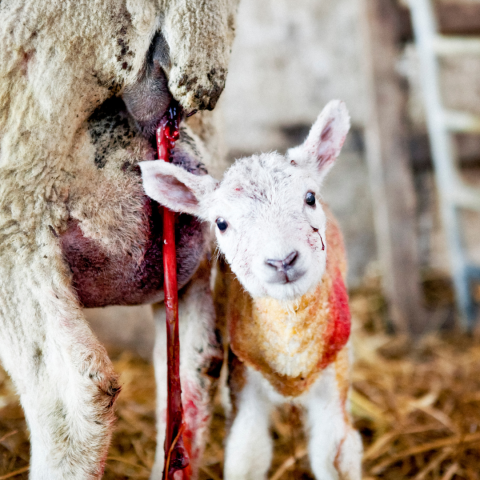Important advice for pregnant women during lambing season

As spring approaches and lambing season gets under way, the Public Health Agency (PHA) is reminding pregnant women of the potential risks associated with close contact with sheep during this time.
The PHA advises women who are pregnant or think they may be pregnant to take precautions to reduce the risk of miscarriage and infection by avoiding close contact with sheep, particularly during lambing season, which typically runs until the end of April.
Dr Patrick McAleavey Consultant in Health Protection at the PHA, said: “While the number of reported infections and human miscarriages resulting from contact with sheep is very low, it is important that pregnant women are aware of the potential risks and take appropriate precautions.”
To minimise the risk of infection, pregnant women are advised to:
- Avoid assisting with lambing or milking ewes.
- Avoid contact with aborted, miscarried, or new-born lambs, as well as with afterbirth, birthing fluids, or contaminated materials such as bedding.
- Avoid handling clothing, boots, or other items that have been in contact with lambing ewes.
- Ensure that partners or household members who work with sheep wash thoroughly after contact with lambing ewes.
It is also important to note that these risks are not limited to spring or to sheep alone. Cows and goats that have recently given birth can also carry similar infections.
Dr McAleavey added: “If a pregnant woman develops a fever, flu-like symptoms, or has concerns about possible exposure to infection from a farm environment, she should seek medical advice promptly."
For further information and guidance, visit www.nidirect.gov.uk/articles/health-during-pregnancy or speak to your midwife or GP.
